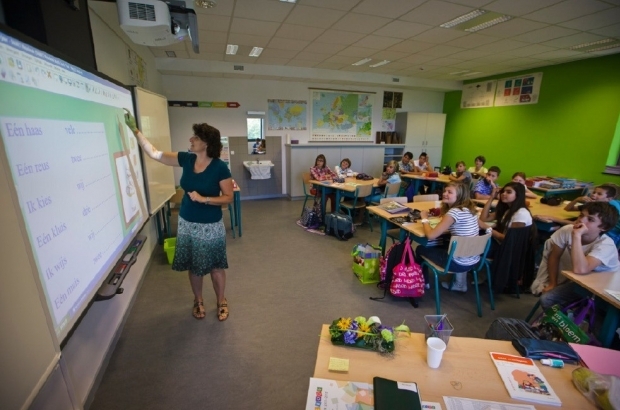- Daily & Weekly newsletters
- Buy & download The Bulletin
- Comment on our articles
French-speaking schools to have fewer 'empty days' at end of term
Secondary school students in French-speaking education in Brussels are often opting to simply stay home during the last week of the term because of "jours blancs", or days where no lessons take place.
The number of these days has increased under the implementation of the new holiday schedule, Bruzz reports, with parents saying the content of lessons has not yet been adapted to match the new term dates.
“My children had their last exam on 21 June. From 26 June they’re sitting at home,” one parent told Bruzz.
“On Tuesday they picked up their certificates, but since then they have been sitting at home again, because officially there is still class until 5 July.”
Another parent said much the same: “Since the new holiday system was introduced, there are more days off at the end of the year. What’s the purpose? I don't understand the pedagogical point. It's as if the old school system is still going on, even now that the new holiday system has been introduced.”
Since the recent reform in French-speaking education, summer holidays are now two weeks shorter and spring and autumn half-term holidays have been extended to two weeks instead of one week.
The exams in French-speaking education took place from 21 to 28 June. Since 26 June, there have been no more classes and pupils from various schools have been allowed to stay home.
But, officially, until 5 July, they were still subject to compulsory education and may not go on holiday.
These "jours blancs" are used by schools to organise examination catch-up sessions, corrections, deliberations and meetings with parents.
Jean-François Mahieu, spokesperson for the office of French-speaking education minister Caroline Désir (PS), said that these empty days were not due to the reform.
“Every school has a certain number of ‘empty days’,” Mahieu explained. “The reform of the holiday system has not changed that.”
The maximum number of empty days is even laid down in the Education Act of the French Community: three days in primary education, 18 days in total from the first to third year of secondary, and 27 days in total from the fourth to sixth year of secondary. Each school can choose how to fill these days.
Some schools organise educational or pedagogical projects in the last days of the year, such as a first-aid course or awareness-raising about bullying, offered by associations, spokesperson Géraldine Kamps of Wallonia-Brussels Education told Le Soir.
But often pupils simply stay at home. Mahieu stressed that this is nothing new: pupils have always stayed home more often during the last days of the year.
Nevertheless, Désir's cabinet is making adjustments.
“People may feel that the number of 'jours blancs' is too high,” Mahieu said. “These days mean less learning time. This is also our interpretation.”
The education reform therefore envisages a reduction in the number of empty days in primary education and a gradual reduction in secondary education: from 2026 or 2027, the maximum number of "jours blancs" will be reduced by a third.

















